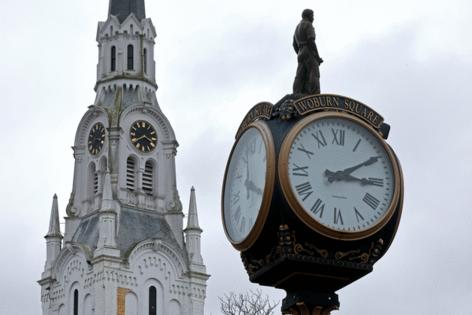Trump vows to eliminate 'inconvenient' daylight saving time
Published in News & Features
President-elect Donald Trump said Republicans will seek to eliminate daylight saving time, calling the semiannual time changes “inconvenient” and “costly.”
“The Republican Party will use its best efforts to eliminate Daylight Saving Time, which has a small but strong constituency, but shouldn’t!” wrote Trump in a post Friday on his Truth Social platform. “Daylight Saving Time is inconvenient, and very costly to our Nation.”
While the president-elect didn’t elaborate on his position, it’s not the first time Trump has waded into the debate. In 2019, after Americans lost an hour of weekend time by “springing forward,” he posted on social media that “making Daylight Saving Time permanent is O.K. with me!”
One issue with abolishing the time changes is that Congress would have to decide whether to eliminate Daylight Saving Time, or make it permanent — that is, to give the hour of sunlight to the morning or the evening.
A champion of making it permanent is Trump’s pick for secretary of state, U.S. Sen. Marco Rubio of Florida, the sponsor of a bipartisan bill called the Sunshine Protection Act, who has called the ritual “stupid.” The legislation, which Rubio reintroduced in 2023, has 38 co-sponsors in the House — mostly from Sun Belt states — and 18 in the Senate.
The issue has also caught the attention of the incoming president’s appointed government efficiency czars, Tesla Inc. CEO Elon Musk and biotech entrepreneur Vivek Ramaswamy.
“Looks like the people want to abolish the annoying time changes!” Musk posted on X last month.
“It’s inefficient & easy to change,” added Ramaswamy.
The idea of daylight saving is often credited to Ben Franklin, who thought an extra hour of sunlight could save on candles. But the energy-saving rationale has changed over the years, and studies also show that disrupted sleep patterns can have an effect on health and traffic fatalities.
Congress eliminated the time changes for two years during the energy crisis of the 1970s, but it proved unpopular as Americans found themselves going to work and school in the dark.
©2024 Bloomberg L.P. Visit bloomberg.com. Distributed by Tribune Content Agency, LLC.







Comments